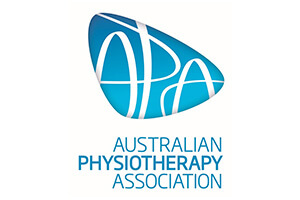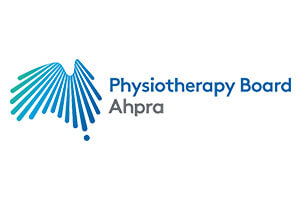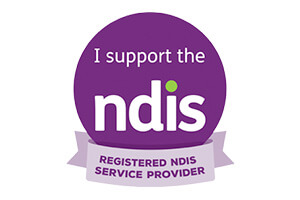

Hip Pain
Hip Pain Treatment Carnegie
Our hip joints may be durable, but they’re not indestructible.
What is Hip Pain?
A generic name used to describe symptoms you may experience in the hip region, hip pain may be caused by various structures within the joint, as well as dysfunction in the lumbar spine.
It is important to establish what type of injury and what structures are involved to address your pain. Your physiotherapist will ask you some questions to understand the symptoms you are feeling and activities that are causing you pain. Physiotherapists will also assess your lower limb, lumbar spine, pelvis, sacroiliac joint (SIJ), body mechanics, and muscle strength and length to establish what may be causing your pain.


GLEN EIRA PHYSIOTHERAPY
Common Causes of Hip Pain
There are many different causes of hip pain, from injuries to various medical conditions.
Some common causes of hip pain include:
- Osteoarthritis
- Bursitis
- ITB band syndrome
- Snapping hip
- Labral tear
- Nerve pain
- Iliopsoas (hip flexor) strain
- Gluteal tendinopathy
- Fractures
- Fibromyalgia
- Referred pain
- Inflammatory arthritis
Causes of Hip Pain in Children
Kids may also experience hip pain, which may have different causes than the pain experienced by adults. Some of the common causes include:
- Injury (such as labral tear or fracture)
- Structural hip issues (such as dysplasia)
- Disease (such as Legg-Calve-Perthes disease)
- Infection (such as septic arthritis)




Symptoms of Hip Pain
Hip pain may come on suddenly or it can develop slowly over time. It may also occur immediately after sustaining an injury or the onset of symptoms may be delayed – every person and every condition/injury is different.
Depending on the cause of your hip pain, the symptoms you may experience include:
- Dull or sharp pain in the hip joint
- Stiff hip joint
- Pain that radiates to the thigh, groin, buttock, lower back, or even knee
- Locking, clicking, or catching sensation in the hip
- Tenderness when touching the hip joint
- Redness, swelling, and/or warmth
- Tingling, numbness, and/or pins and needles
- Associated weakness
- Reduced range of motion
Don’t let hip pain prevent you from doing the things you love –
Glen Eira Physiotherapy may be able to help.
Treatment Available for Hip Pain
After establishing the cause of your pain, your physiotherapist will propose an individual treatment plan. Treatment will depend on whether the pain is acute (meaning it’s occurred recently) or chronic (meaning it’s been present for more than two months).
Fortunately, most acute hip pain is mild and often settles with some simple treatments (like hot or cold packs, physical activity, trigger point therapy, dry needling, exercise, and physiotherapy). Anti-inflammatories and anti-spasm medications may be used to provide some relief in the meantime.
Depending on the type and cause of the pain you’re experiencing, your physiotherapist may recommend muscular release, spinal mobilisation, and advice on what postures or activities to avoid. They may also prescribe exercises to address any muscle weakness or muscle imbalance you might have and work on your core strength.
Surgery may be required in more serious chronic pain cases, but this will be discussed between you and your physiotherapist.


Your Hip Pain Questions Answered
Yes, this is known as referred pain. Although it’s not overly common, sometimes the pain you’re experiencing in your hip has actually come from somewhere else (such as your lower back). A physiotherapist aims to determine if the pain is radiating from your hip or not.
If your pain is acute and you’re looking for some relief while waiting to receive treatment, we recommend the RICE (rest, ice, compression, elevation) method, heat packs, and over-the-counter pain medications. If your pain is debilitating, do not wait to receive treatment.
Experiencing pain while trying to sleep is often incredibly frustrating. Try sleeping on your back (as sleeping on your side puts pressure on the hip joint), or putting a pillow between your knees to better align your hips. A more supportive mattress or mattress topper may also help.
While it’s impossible to completely prevent hip pain from occurring, there may be things you can do to lessen its likelihood. Things like maintaining a healthy weight, exercising regularly, using proper technique in sports, and stretching may help to keep your hip muscles strong and flexible.
It may be normal for your pain to worsen during or after a physiotherapy appointment. Think of it this way – when you run for the first time in a while, your body feels stiff and takes time to strengthen. As time goes by, however, it will likely get stronger and you’ll feel your symptoms improve.
Why Choose Glen Eira Physiotherapy?
25+ Years Experience
Glen Eira Physiotherapy and Physiolates has been providing comprehensive care to patients for more than 25 years now – our team has seen it all!
Personalised Treatment Plans
No two patients are the same – our therapists craft personalised treatment plans according to your physical needs and time constraints.
Clinical Pilates Classes
We offer clinical Pilates classes run by accredited and experienced physiotherapists to aid you in the pursuit of living pain-free.
Signs Your Hip Pain is More Serious
You should seek medical attention straight away if:
- The pain is sudden and/or intense
- The pain is caused by a fall or other injury
- The joint appears deformed or is bleeding
- You heard a popping noise in the joint when it became injured
- You cannot put any weight on your leg or hip
- You have sudden swelling
- You’re experiencing fever, chills, redness, or other signs of infection
We also recommend speaking with your physiotherapist if:
- Your hip pain is causing you to skip your regular activities
- The pain is persistent or keeps coming back
- You’ve lost range of motion in your hip
- A specific activity causes recurring pain
- You have pain at night or while resting
In some cases, hip pain may indicate a more serious issue, such as a fracture or dislocation, infection, osteomyelitis, or avascular necrosis. These are issues that will not resolve on their own and will become worse if ignored.




Address Your Hip Pain at Glen Eira Physiotherapy
Hip pain is a relatively common occurrence and may have many causes, so it’s important not to panic if you start to experience pain. Instead, make an appointment with the team at Glen Eira Physiotherapy and let us get to the bottom of your pain. We’ll tailor a treatment plan that gets to the root of your problem in an effort to have you walking with less pain in no time.
Find Us
Hip Pain Treatment Near Me: Get Directions From Your Location
If you would like to speak to one of our team members or make an appointment, please call us on (03) 9571 2111 or book online now.
Physiolates have been providing comprehensive care to patients in Melbourne’s South East. We are a multi-disciplinary clinic with highly experienced staff dedicated to providing high-quality care to our patients.





